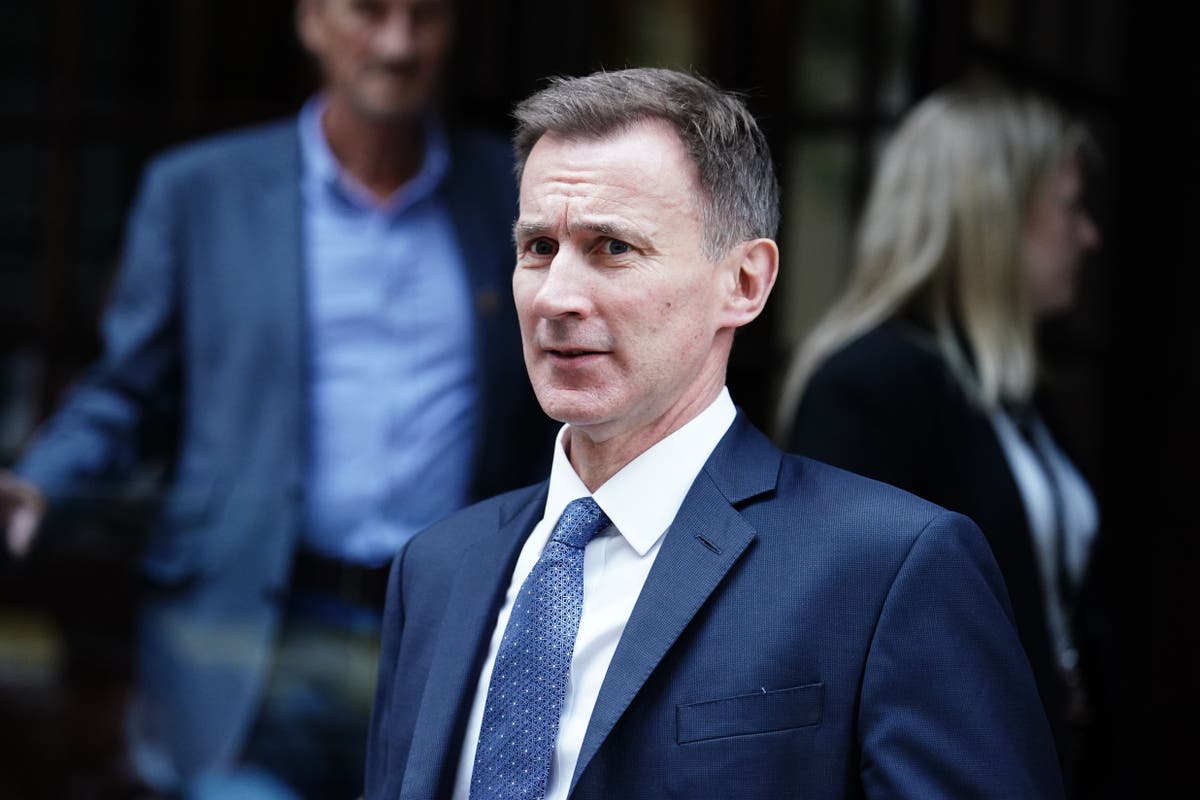Chancellor Jeremy Hunt welcomed some “excellent news” for the economic system as the most recent official figures confirmed that UK wages are outpacing inflation for the primary time in almost two years.
The Workplace for Nationwide Statistics (ONS) mentioned that common earnings rose by a close to document 7.8 per cent within the three months to August.
It implies that wages at the moment are rising quicker than costs for the primary time since October 2021, a interval which has seen Britons battling the price of residing disaster.
It is going to come as a reduction to employees who’ve seen their pay packets eroded by hovering costs and for Rishi Sunak – who pledged at first of 2023 to halve inflation by the top of the 12 months.
“It’s excellent news that inflation is falling and actual wages are rising, so individuals have extra money of their pockets,” mentioned Mr Hunt. “To maintain this progress, we should keep on with our plan to halve inflation.”
Revised figures from the ONS revealed that annual progress in common pay excluding bonuses exceeded CPI inflation by 0.1 per cent within the earlier three months to July, having initially estimated flat actual earnings progress.
Wages at the moment are surging by document ranges seen outdoors of the pandemic-skewed period, with common pay leaping by an upwardly revised excessive of seven.9 per cent within the three months to July, in keeping with the ONS.
Inflation can also be easing again, falling to six.7 per cent in August, having reached a 41-year excessive of 11.1 per cent final October, and with official figures on Wednesday anticipated to indicate one other decline to six.6 per cent.
Sunak and Hunt underneath stress to chop inflation and to chop taxes
(Downing Road)
The Unite commerce union mentioned the rise in actual wages might be “small respite” for a lot of. “The actual worth of wages has been eroded over greater than a decade,” mentioned common secretary Sharon Graham.
She mentioned the most recent information suggesting will give hard-working households “some small respite from the harm that has been wrought on family incomes by years of financial incompetence and mismanagement.”
However there was extra blended information on the broader employment sector, with provisional real-time figures estimating that UK employees on payrolls fell by 11,000 month-on-month to 30.1 million in September.
The ONS additionally revised down its estimate for the earlier month, to a fall of 8,000 payroll employees in August in contrast with July towards the 1,000 lower initially reported.
Vacancies additionally dropped to 988,000 within the three months to September, down by 43,000 on the earlier quarter and marking the fifteenth drop in a row. In contrast with a 12 months earlier, vacancies have been 256,000 decrease between July and September.
It comes because the Institute for Fiscal Research warned that the UK economic system is in a “horrible fiscal bind” because it heads for recession enhance public spending to supply a lift.
The IFS warned that Britain will stoop right into a “reasonable” recession within the first half of 2024, because the wrestle for progress stays whereas borrowing prices keep elevated.
Samuel Tombs at Pantheon Macroeconomics mentioned the slight easing within the tempo of wage progress ought to allow curiosity rate-setters on the Financial institution of England to carry off from additional rises.
“Indicators that wage progress is shedding momentum ought to persuade the MPC to maintain Financial institution Fee at 5.25 per cent once more subsequent month,” he mentioned. He added the Financial institution is prone to maintain charges at 5.25 per cent till subsequent spring “after which to scale back it to about 4.5 per cent by the top of 2024”.









